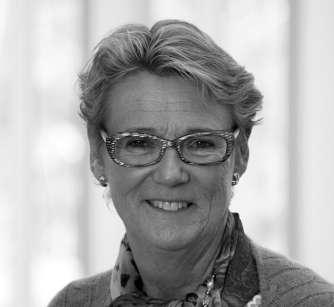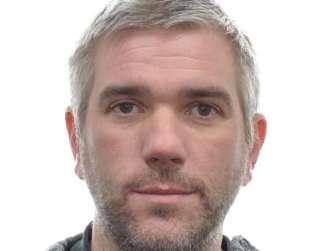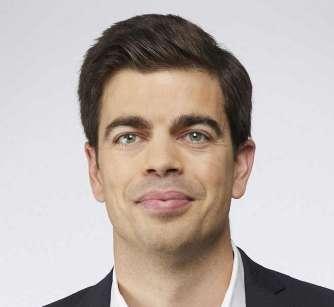OR
Operation Report
Finding new markets: Metsä Tissue’s Raubach plant, and inset, Tobias Lüning, Vice President Supply Chain Western Europe, Country Manager Germany.
T
issue companies’ responses to the new demands made of them by the pandemic crisis have taken many forms. Some predictable and well know, some not so predictable. In Metsä Tissue’s case its Katrin dispensers have been providing paper towels across Germany and beyond as hot-air hand dryers have been replaced to reduce the spread of viruses and bacteria. Another source of company growth was not so predictable. One of its key products is greaseproof papers, and the pandemic has changed that market too. The lockdown meant many more people spending more time at home, and a subsequent increase in home-cooking and baking, and a nice upturn on the sales graph. It is a boom the company expects will continue. That transition out of the worst of the pandemic, and its wildly varying effects on the tissue industry, is the next chapter in the story. How, and when, will it settle, and especially in this pioneering, mature market which is already at 86% private label and is as innovative as it ever. Tobias Lüning is looking to the future. Metsä Tissue owns brands including Lambi, Serla, Mola, Tento and SAGA in the consumer market, and in the professional
market it operates under the Katrin brand. It also manufactures private label products for customers, foremost in Germany. It has three mills in Germany with multiple paper machines and converting lines producing over 200,000tpy of tissue paper and 35,000tpy of greaseproof paper. Following an increase in customer demand for professional tissue paper products, the company’s latest investment was at its Raubach mill where it invested €10m in a converting line that is about to start-up in the second half of 2021. It will produce 16,000tpy of folded hand towel converting line and according to Lüning strengthens the company’s market position, especially in Western Europe. He adds that a bigger share of production is for the consumer market, as well as the professional market. “Our consumer business in Germany is mostly the private label business whereas in the professional business our Katrin brand has an important role.” At the start of 2020, Metsä Tissue divested its napkin business to Keeeper Group to focus on tissue, and its business plans have not changed since: “We still see a growing demand for high-quality tissue
and greaseproof paper, and we are focusing on those categories.” The transaction includes the real estate, machinery, equipment and warehouses at the Stotzheim mill in Germany as well as the Fasana and Mondial brands. At the time, the business said that the napkin business had “not reached profitability targets lately, and napkins are not part of our core offering anymore”. The move “supported Metsä Tissue’s strategy, and enables us to focus on our core business, producing high-quality tissue and greaseproof papers close to our customers”. Following the outbreak of Covid-19, Lüning says it has “certainly made a big impact”. “I can only repeat what our Chief Executive Esa Kaikkonen has said, and that Covid-19 has offered us many new growth opportunities – especially in hand hygiene. Since spring last year, public facilities and toilets all around Europe have been fitted with Katrin paper towel dispensers in place of hot-air hand dryers that disperse viruses and bacteria. The use of tissue paper has also increased in healthcare.” For the use of papers outside of the home, it is a waiting game for when the situation will continue to improve and for Tissue World Magazine | July/August 2021
29
Operation Report
Metsä Tissue divested its napkin business in 2020 and has realigned its focus on tissue. Tobias Lüning, Vice President Supply Chain Western Europe, Country Manager Germany, spoke to TWM.
OR
DISPENSING A CLEANER, SAFER SERVICE FOR GERMANY’S HEALTH-CONSCIOUS PUBLIC












